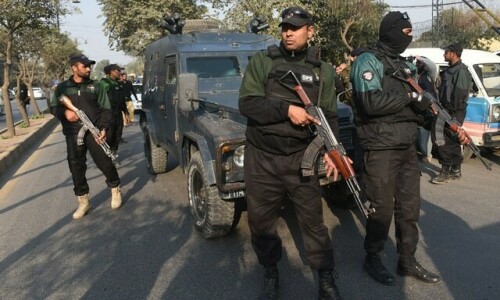The World Justice Project’s (WJP) Rule of Law Index over the past four years has shown that Pakistan’s rule of law ranking reflects significant difficulties in law enforcement, particularly with regard to police accountability and efficiency.
Pakistan consistently occupies lower positions on the Index, hovering around places like 120th out of 128 in 2020, 130th out of 139 in 2021, and 129th out of 140 in 2022. Pakistan’s performance was only better than Afghanistan’s at the time, placing it among the lowest-ranked South Asian nations. Pakistan remained plagued by severe problems with the rule of law in 2023, placing 130th out of 142 nations.
The accountability, justice, and security aspects of the WJP index are all areas in which Pakistan faces significant constraints as a result of its political and institutional limitations. Pakistan has consistently fallen behind countries like Nepal, Sri Lanka, and India in terms of regional ranking, placing near the bottom of South Asia.
These findings are not isolated; Numerous studies demonstrate the low level of public trust in Pakistan’s police force. For instance, only a small percentage of Pakistanis have faith in their police, according to the Consortium for Development Policy Research. In addition, a global study by Gallup in 2022, a regional sociopolitical conditions study by Horizon Insights in 2023, and an analysis of Pakistan’s most recent institutional reforms in 2024 by Ahmed and Jafri all point to similar trends. There are numerous others.
The most recent study, in particular, found that, despite the beginning of digitalization efforts and simplified reporting systems, public perception has not yet been significantly altered. Real reforms necessitate robust oversight mechanisms and consistent enforcement, which are still lacking.



